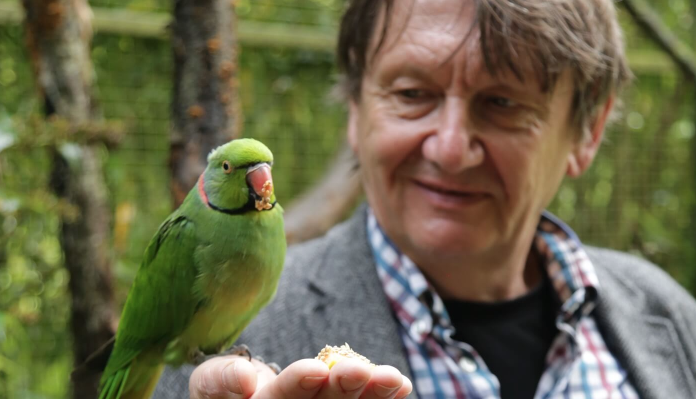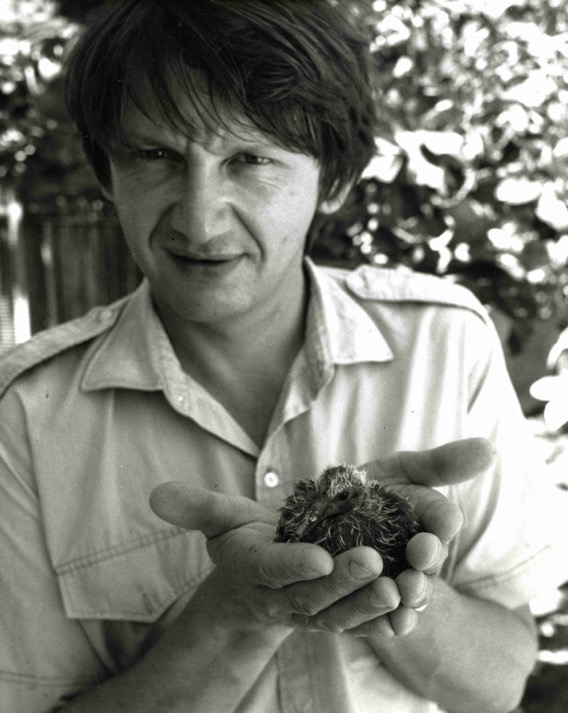

A Durrell conservation biologist who has helped save nine species from extinction has won top honours in the conservation world and a quarter of a million dollars.
Professor Carl Jones MBE, who declares himself a 'disciple' of Gerald Durrell, has won the 2016 Indianapolis Prize for his ‘extraordinary contributions to conservation efforts'.
Professor Jones is an International Conservation Fellow at Durrell who worked with Gerald Durrell in 1979 to establish a wildlife sanctuary on the Mascarene Islands off Madagascar and has rescued five species of bird which had dwindled down to less than 12 individuals. He has been working for the Trust for more than 30 years.
He said: “Winning the 2016 Indianapolis Prize is undoubtedly one of the highlights of my career. It’s a great accolade not just for me, but for Gerry Durrell and the people who have made this work possible over the years.

“I’m particularly proud of this award because it validates the conservation of animals — like Telfair’s skinks and pink pigeons — that are not megavertebrates, but provide critically important ecosystem services nonetheless.”
Professor Jones is best known for his work with the Mauritius Kestrel, which he helped take from just four individuals in 1974 to an estimated 1,000 in 2005 but he's also helped other species including the pink pigeon, echo parakeet, Rodrigues warbler and Rodrigues fody. And he has worked to restore the populations of many more species.
Lee Durrell, Gerald’s widow and Honorary Director for Durrell Wildlife Conservation Trust said: “Carl is living proof that by having the courage, talent and vision to take small steps, we can win victories for species large and small.
“Not only has Carl built upon the legacy left by Gerry, but he’s created his own — one that will endure for generations to come."
Professor Jones was one of six finalists up for the award and will take home the Lilly Medal and a $250,000 cash award.
President & CEO of the Indianapolis Zoological Society Michael Crowther said: "The Indianapolis Prize has two primary functions. First, it rewards and honours animal conservationists who are actually achieving notable successes.
"Secondly, it provides them with a more effective platform from which they can tell the stories of their work to a wide range of audiences ... especially the public.”
Professor Jones will be announced the winner at a celebratory ceremony at the London Natural History Museum this afternoon where there will also be a big discussion about the future of animal conservation.
Picture credits: Durrell
Comments
Comments on this story express the views of the commentator only, not Bailiwick Publishing. We are unable to guarantee the accuracy of any of those comments.